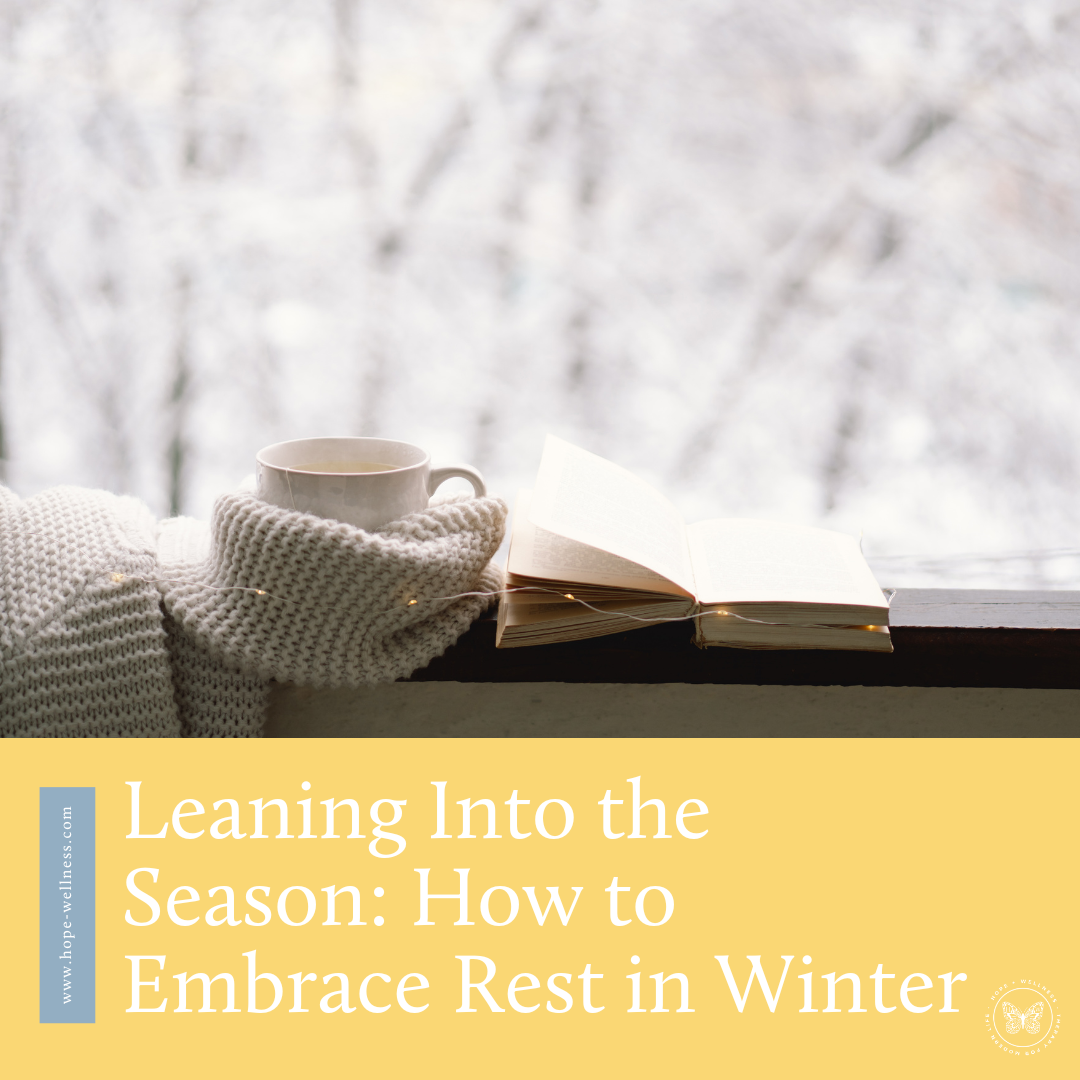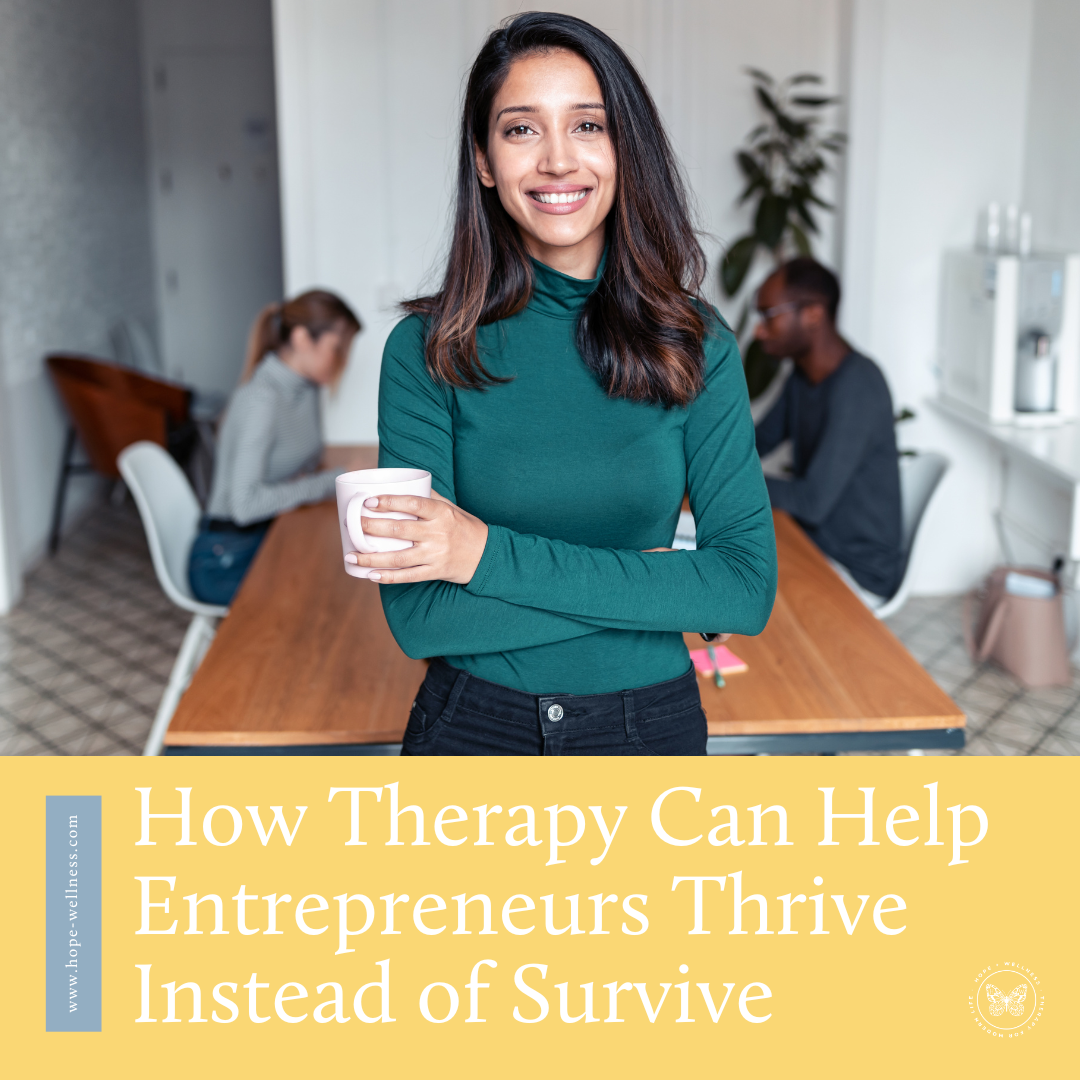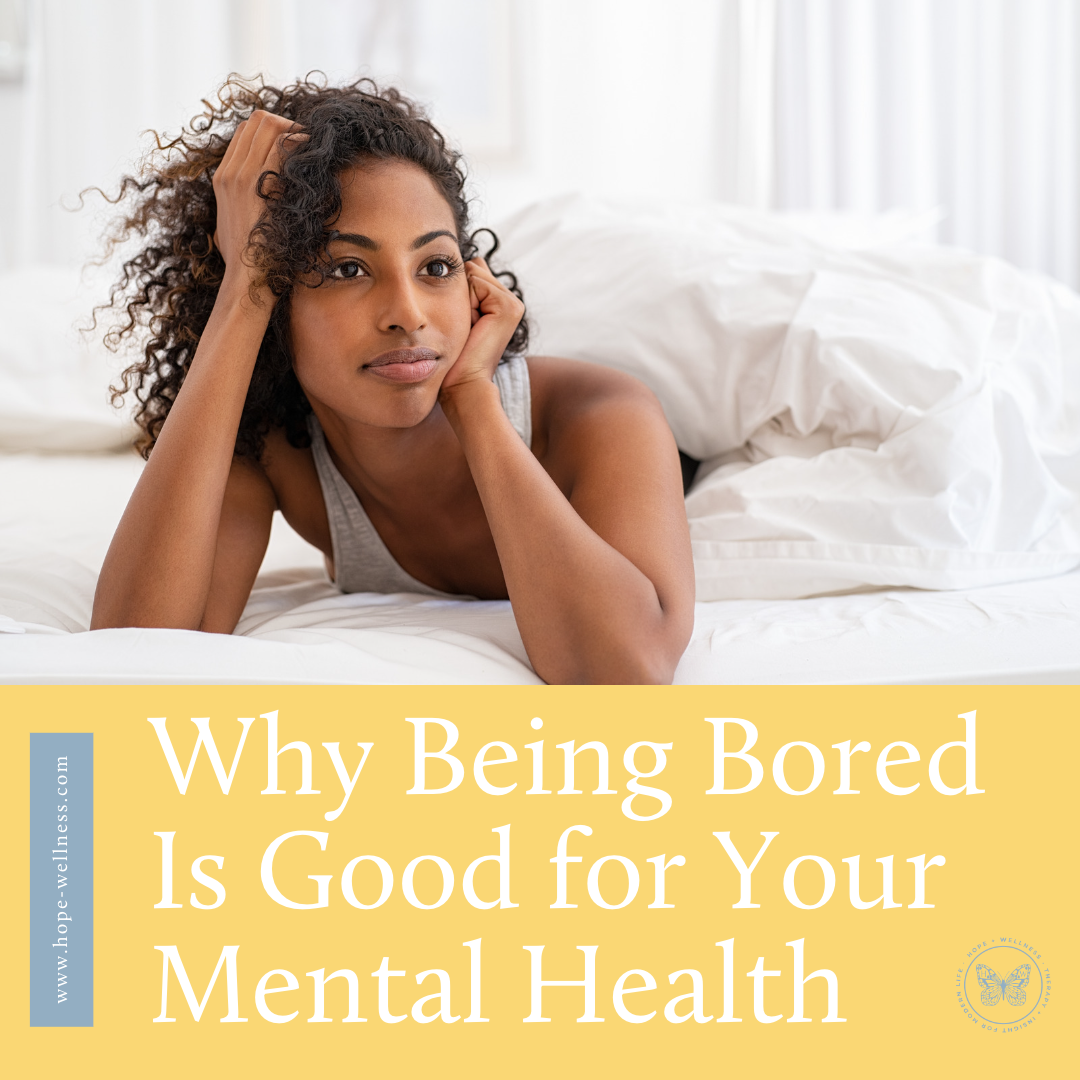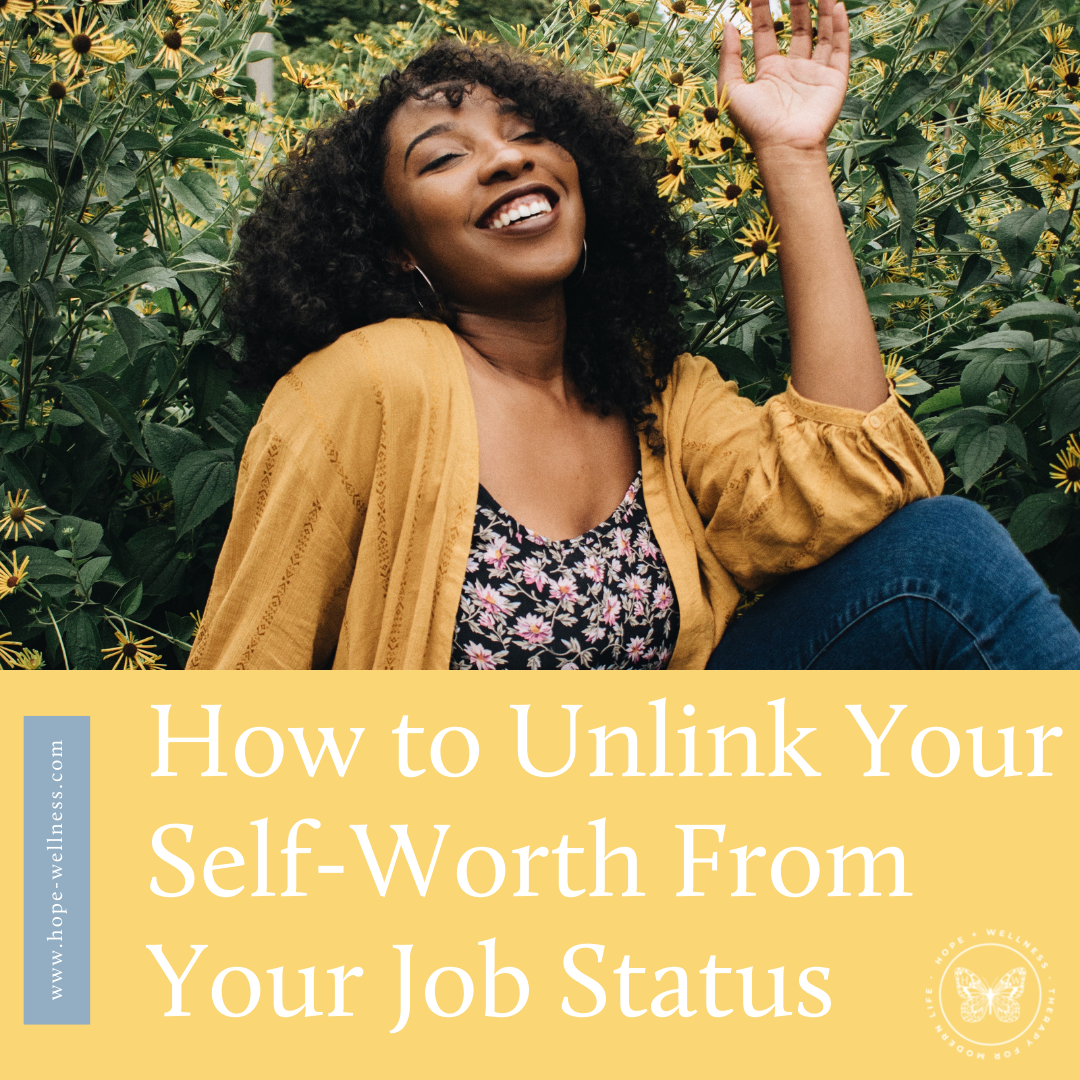
Hope +Wellness Blog
little snippets of advice for everyday challenges many people share

Leaning Into the Season: How to Embrace Rest in Winter
What if winter isn’t a time to push through, but an invitation to slow down? Even if we can’t get there fully, like bears hibernating until spring, can we meet our need for slowness and rest this season halfway? Can we learn to welcome a season of rest? Embracing rest during this season can be a radical act of self-care and healing.

How Therapy Can Help Entrepreneurs Thrive Instead of Survive
As an entrepreneur, therapy can make a real difference in your business and personal life, while meeting you right where you are. Here’s how.

Why Being Bored Is Good for Your Mental Health
Boredom has a reputation for being a negative state of mind, but boredom actually has benefits for your mental health, like improving creativity, curiosity, and self-control.

How to Unlink Your Self-Worth From Your Job Status
If you’ve spent most of your life tying your self-worth to your work, you’re certainly not alone. Here are some ideas for how to cope when you feel like your self-worth relies on your productivity or job status.
Hope+Wellness is a mental health practice specializing in the treatment of depression, mood, stress, and anxiety in kids, teens, and adults. This is a blog about living well and finding meaning and purpose in the face of difficult challenges. This is a blog about finding hope.
Archive
- ACT
- ADHD
- Acceptance
- Anxiety
- Authenticity
- Belonging
- Bipolar
- CBT
- Calming
- Change
- Chronic Illness
- Chronic Pain
- Communication
- Community
- Coping Skills
- DBT
- Dating
- Depression
- EMDR
- Emotions
- Entrepreneurs
- Friendship
- Gratitude
- Grief
- Health Psychology
- Hope
- Inspiration
- Intimacy
- Intuition
- Joy
- Letting Go
- Love
- Manic Depression
- Mindfulness
- Miscarriage
- OCD
- Parenting
- Personal Growth
- Positive Vibes
- Quotes
- Relationships
- Resources
- Self-Compassion
- Self-Reflection
- Services
- Sleep
- Spirituality
- Stress Management
- Stress Relief
- Suffering